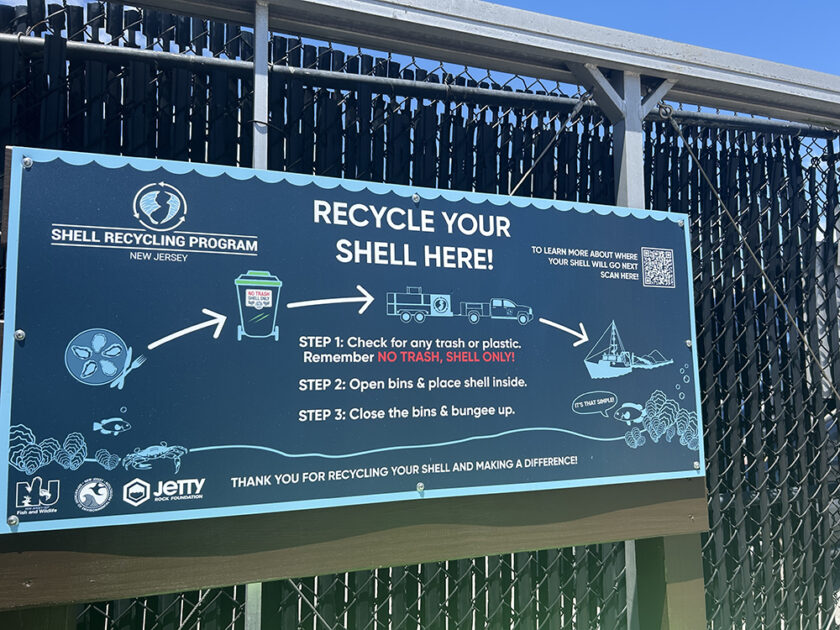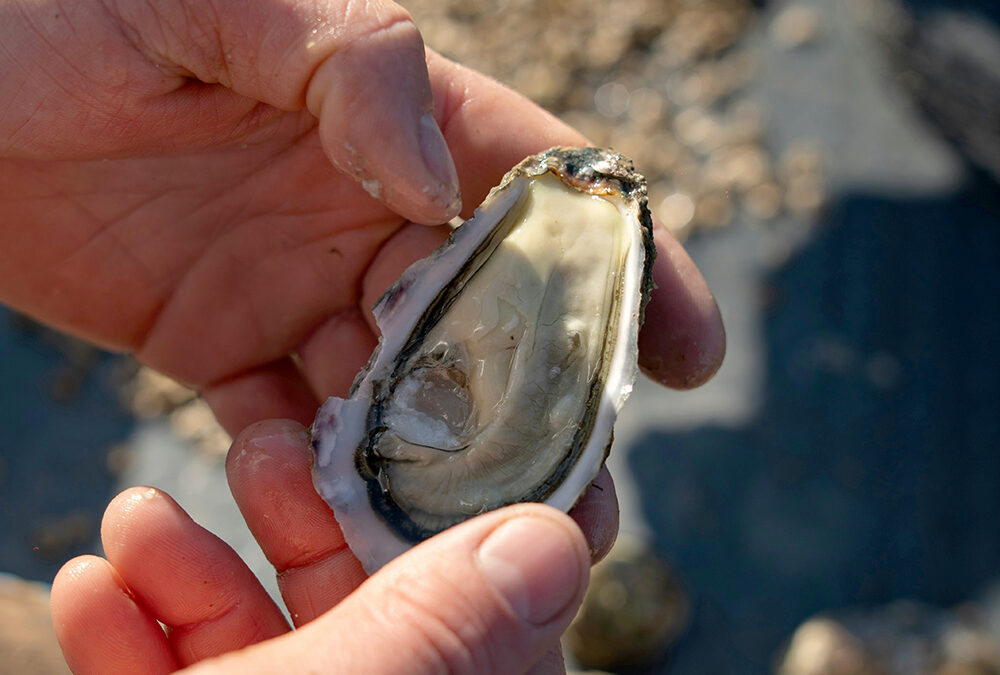For those enjoying a meal of clams or oysters at home, discarded shells no longer need to end up in the trash, thanks to an initiative aimed at restoring and enhancing local oyster reefs.
The New Jersey Department of Environmental Protection (NJDEP) Division of Fish and Wildlife recently announced the opening of its first two public shell drop-off locations: one at the Knife & Fork Inn in Atlantic City and another at the Shelter Road Recycling Center in Ocean City, according to a press release from the Ocean City Department of Public Works.
Anyone can drop off leftover shells into the bins, which are then collected, cured and used to rebuild natural reefs that support wild oyster populations.
According to the department’s Shell Recycling Program website, the NJDEP’s Marine Resources Administration (MRA), Jetty Rock Foundation, Rutgers Cooperative Extension and Stockton University initially agreed to partner on a conceptual shell recycling program based in Atlantic City in 2019. The program was developed after Hard Rock Hotel and Casino expressed interest in recycling shells to enhance oyster habitats in the region.
Since then, the program has expanded to partner with several restaurants across Atlantic and Cape May counties.
In 2022 alone, over 90 tons of recycled shells were collected from five restaurant partners, according to an annual collection report by the MRA.

MRA staff collect shells from participating restaurants and venues each week and transport them to the Nacote Creek Research Station in Port Republic. The shells then undergo a six-month curing process to eliminate any potential diseases that could be harmful to native oysters, according to the program website.
Once cured, the shells are loaded onto a barge and delivered to the Mullica River — home to one of the last self-sustaining oyster populations on the Atlantic coast. MRA staff then use high-pressure water cannons to deploy the cured shells onto the river’s reefs.
Through these efforts, hundreds of tons of recycled oyster shells and shells from other sources have been added back to these reefs to date. The shells provide the hard surfaces oyster larvae need to attach, grow and form new reef structures.
When oysters are harvested, both the oysters and their habitat — their shells — are removed. Without enough hard substrate for larvae to settle on, populations can struggle to sustain themselves over time.
Eastern oysters are considered a “keystone species,” meaning they play a vital role in maintaining a healthy ecosystem. Restoring oyster reefs offers environmental benefits such as reducing coastal erosion, improving habitats and water quality and supporting fisheries.
Those looking to join the efforts can drop off their empty shells at the Shelter Road Recycling Center at 1 Shelter Road, located off Tennessee Avenue in Ocean City. The site is open Monday through Saturday from 8 a.m. to 3 p.m. from Memorial Day through Columbus Day.
For more information, visit dep.nj.gov/njfw/fishing/marine/shell-recycling-program.


















